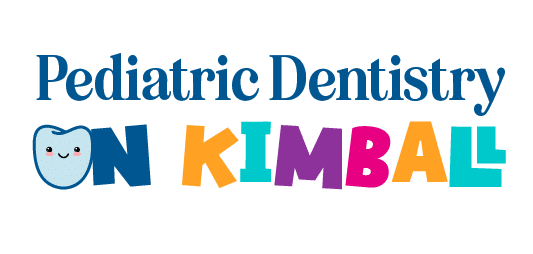Teething timelines can look very different from one child to the next, and that variation often leads parents to worry when teeth seem slow to appear. In most cases, late teething on its own is not a sign of a developmental delay. What matters more is the overall pattern of your child’s growth and milestones. At Pediatric Dentistry on Kimball, we help families in Brooklyn, NY understand what is normal, when to watch more closely, and when an evaluation can provide reassurance. If you have concerns, our team is always available to talk, schedule an infant evaluation, or help you decide next steps.
This Article will address
- Is there a link between late teething and developmental delays
- When babies typically start teething and when it may be considered late
- Common and genetic causes of delayed teething
- When delayed teething may point to a medical concern
- Signs that mean it is time to see a pediatric dentist or pediatrician
- How delayed eruption of baby or permanent teeth is evaluated
- How Pediatric Dentistry on Kimball supports families in Brooklyn, NY
Quick Answer: Is Late Teething Linked to Developmental Delays?
Late teething by itself is usually not linked to developmental delays. Many healthy children get their first tooth later than average and go on to meet all other milestones on time. Teething timing can vary widely due to genetics, growth patterns, and natural differences between children. Delayed teething becomes more meaningful only when it appears alongside other concerns, such as delays in motor skills, speech, growth, or feeding. If you notice multiple developmental differences, that is when it is appropriate to speak with your pediatrician or pediatric dentist for further guidance.
At What Age Should Babies Start Teething, and When Is It Considered Late?
Most babies begin teething between 6 and 10 months of age, but this range is flexible. Some children show their first tooth as early as 4 months, while others may not erupt a tooth until closer to their first birthday.
Teething may be considered late when:
- No teeth have erupted by around 12 to 15 months
- There is no sign of tooth eruption and other milestones are also delayed
Even then, late teething can still be normal. A conversation with a pediatric dentist can help determine whether monitoring or further evaluation is needed.
What Causes a Baby to Be Late Teething?
In many cases, delayed teething has simple and non-alarming explanations. Common causes include:
- Natural variation in growth and development
- Family history of late teething
- Differences in jaw or gum thickness
- Premature birth, which can shift developmental timelines
These factors do not usually affect long-term dental or overall health.
Is Delayed Teething Genetic?
Yes, genetics can play a role in when a child’s teeth erupt. If parents or siblings were late teethers, a child may follow a similar pattern. Genetic influence is more likely when a child is otherwise healthy and meeting expected developmental milestones. Genetics is less likely to be the sole explanation if delayed teething is paired with noticeable delays in growth, movement, or communication.
Can Delayed Teething Indicate an Underlying Medical or Developmental Issue?
Delayed teething is often benign, but in some cases it can be one part of a broader medical picture. Medical or developmental conditions that affect growth or metabolism may also affect tooth eruption. These situations typically involve additional signs beyond teeth alone.
Parents should speak with their pediatrician if delayed teething is accompanied by:
- Delays in sitting, crawling, walking, or talking
- Poor weight gain or growth concerns
- Muscle weakness or low muscle tone
- Ongoing feeding difficulties
A coordinated approach between a pediatrician and a pediatric dentist helps ensure nothing is overlooked.
What Syndromes Are Associated With Delayed Tooth Eruption?
Certain genetic syndromes and endocrine or metabolic conditions can affect the timing of tooth eruption. These conditions are relatively rare and usually present with multiple recognizable features beyond delayed teeth. It is important to remember that most children with late teething do not have an underlying syndrome. Only a qualified healthcare provider can evaluate and diagnose these conditions, and an early dental or medical visit can help guide appropriate next steps.
When Should You Worry About a Baby Not Having Teeth?
Late teething may warrant closer attention if:
- No teeth have erupted by 15 months
- Tooth eruption is delayed and other developmental milestones are also delayed
- There is a sudden change in growth or feeding patterns
- There is a family history of medical conditions affecting growth
If any of these apply, scheduling an evaluation provides clarity and peace of mind.
Are There Common Causes of Late Teething in Infants and Toddlers?
Yes, and they can differ slightly by age. In infants, delayed teething often reflects normal variation or genetics. In toddlers, delayed eruption may also involve factors such as retained baby teeth, spacing concerns, or eruption path issues. Teething symptoms like drooling or gum discomfort may still occur even when teeth are slow to emerge. A routine medical or dental check can often rule out underlying concerns.
Why Is Late Teething Sometimes Better?
While late teething is not inherently better, there can be small advantages. Later eruption may reduce early exposure to cavities, especially if oral hygiene routines are still being established. It can also mean fewer teething discomfort episodes during infancy. Most importantly, late teething does not predict poor dental health when proper preventive care is in place.
Treatment for Baby Teeth Coming in Late
Treatment usually focuses on evaluation and monitoring rather than intervention. A pediatric dentist may:
- Track eruption progress over time
- Review growth and developmental history
- Coordinate with your pediatrician if needed
Most children do not require active treatment and simply benefit from professional guidance.
Ensuring Your Baby’s Dental Health in Brooklyn, NY
At Pediatric Dentistry on Kimball, we focus on education, positivity, and honesty to support families from a child’s very first dental visit. Dr. Lionel Vera and our team provide anxiety-free pediatric care, including nitrous oxide when appropriate, to help children feel comfortable and confident. We offer flexible hours after school and on weekends and make scheduling easy through online booking, phone, email, or our contact form. Our goal is to help Brooklyn families build healthy dental habits from the very beginning.
Schedule a Pediatric Dental Visit in Brooklyn, NY
If you have concerns about late teething or your child’s dental development, Pediatric Dentistry on Kimball is here to help. Our Brooklyn, NY team provides thoughtful evaluations, clear guidance, and compassionate pediatric care designed to support your child’s long-term oral health. Contact us today to schedule an appointment by phone or online and get the reassurance you deserve.
Sources

Dr. Lionel Vera
Dr. Lionel Vera brings warmth, expertise, and advocacy to Pediatric Dentistry on Kimball as a board-certified pediatric dentist. He earned his dental degree from the University of Puerto Rico, Medical Science Campus, followed by a residency at Kingsbrook Jewish Medical Center, where he honed his skills with children and special needs patients. A Brooklyn-based pediatric dentist since 2018, Dr. Vera blends compassionate care with a strong focus on educating both children and parents about oral health. Dr. Vera’s mission: to inspire a lifetime of healthy smiles through trust, education, and proactive care.

